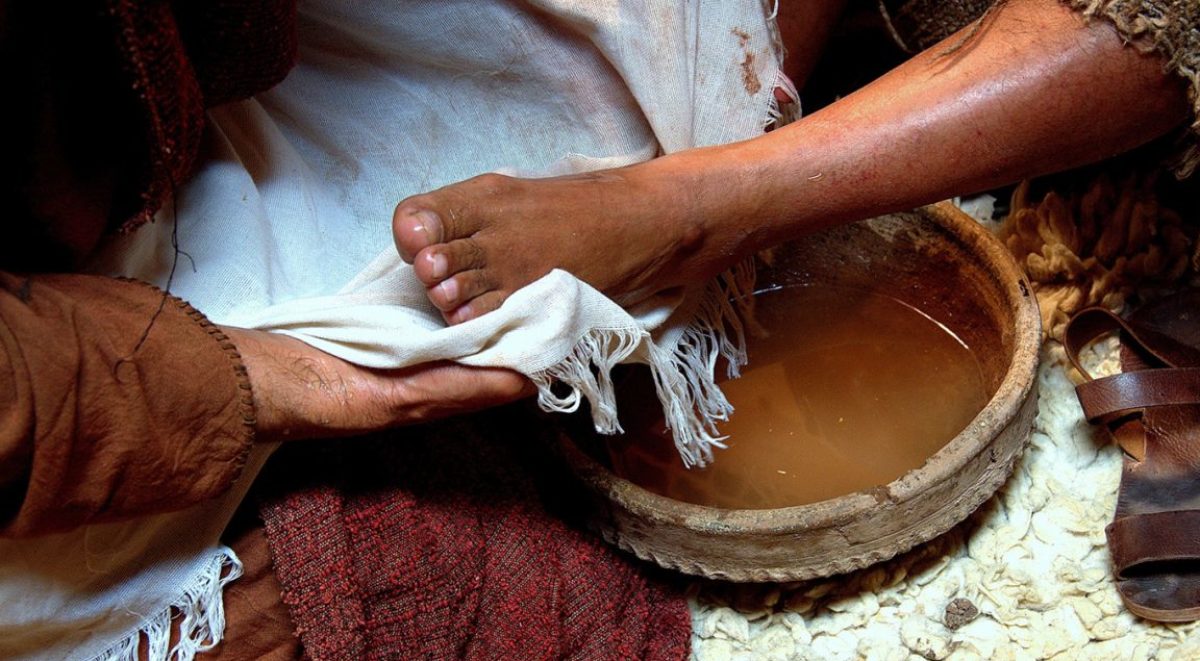By Rev. David Brinton

This evening we begin the celebration of the Christian Passover which will end at Evening Prayer on Sunday. In these sacred three days we celebrate the memorial of events which took place long ago: the Passover of Jesus of Nazareth from death on Golgotha to the risen life of Easter Day, the result of which is the pouring out upon all creation of the benefits of his Passover.
We who have been baptized into the mystery of Christ, we too have passed over. We did so at the font, when in baptism we passed over from the darkness and fear of our own deaths to the light and peace of eternal life with Jesus in the Father.
Of course, our individual Passovers in Christ are not yet completed, in the sense that we have yet to face the final darkness of physical death. We have presentiments of that final obliteration in every disappointment, every illness, every sadness, every depression, every betrayal of this present life.
As is the case every year, this year’s passover brings with it hard reminders that Christ’s passover is not yet completed in us: the world continues to struggle with the pandemic; there is once again war in Europe. But even in the midst of this, we have hints, foretastes of the eternal life promised as the final fruits of our Passover. Even now, we witness mutual love, remarkable courage, healing, new birth, new beginnings, joy, however fleeting, and peaceful moments which assure us that our Passover is real, that our faith in its final fulfillment is not mere wishful thinking.
To help us understand this Passover we are presented with 3 images in the Maundy Thursday liturgy.
1. Ancient Israel’s Passover, the lamb prepared and eaten in haste, blood smeared on the door posts, the death of the Egyptian children, all in preparation for the exodus, their journey through the Sinai wilderness, the crossing of the Red Sea and the passage into the promised land.
2. Christ’s injunction reported by St Paul that the Eucharist was to be the continuing source of peace and unity among Christians, as they journey through history awaiting his coming again, celebrating with these words….this bread is my body…this wine is my blood. Eat and drink them.. Do this in memory of me.
3. The gentle, surprising action during the first eucharist in the cenacle, just before his betrayal, of our Lord washing his disciples’ feet.
In the Exodus story we are reminded that our Passover is connected in a profound way with an ancient story, an ancient people, who in so many ways seem alien to us; in all our longings and fears, our hopes and aspirations, we are at one with those ancient Hebrews who longed for freedom from slavery. To this very day when they celebrate their annual Passover in memory of ancient realities, which they are doing this week, the Jews believe that they with their ancestors are “passing over”. The past event is made real in the present moment in all its saving power. And so here tonight, Christ the lamb of God, slain for the world, himself feeds us and washes us.
In St Paul’s account of how the Eucharist is to be celebrated we are reminded that our most profound needs and hopes and beliefs are expressed in the most creaturely of activities, eating and drinking together. In the shared meal of the eucharist, Christ himself presides, as he did in the upper room at the time of Passover, his loving sacrifice accomplished once for all on Calvary is made real in the present moment and he feeds us with his own life so that we might live with him forever.
In the gospel of John we come to what is, for many, the strangest of these images, the story of the washing of feet which follows the Last Supper. It was a psychological insight of Ernest Becker that in many cultures the foot symbolizes our rootedness to the earth, not in the positive sense of our solidarity with warm mother earth, but in the dark sense of not being able to escape from its pull, from, in other words, our contingency, our fragility, our mortality.
In this context St Peter’s revulsion at the idea of having his feet washed by Jesus takes on new significance: he is not only reacting to what he sees as an inappropriate role reversal; for Peter to allow the Son of God stoop down and wash his feet is to admit what he has by now become notorious for not wanting to face – his cowardice, frailty, disloyalty, his egoism, his obtuseness. But Jesus says he must face them or have nothing to do with him, he must face his creatureliness, his human need.
Tonight, we are all asked to metaphorically allow our feet to be washed, to face our true humanity, our need, our destiny to die, and to let fall away all our anxious and destructive attempts to pretend that it isn’t so. Only in this surrender can we begin to fully understand and participate in our Passover.
Christianity is not an other-worldly, intellectual religion. It is of this earth earthy. The profoundest truths of human existence are discovered in and expressed by the creatures God has made and in their real lives – escaping from tyranny, sharing a meal, stooping to care for each others’ most basic needs.
It is here that God is found, for he who was invulnerable became most vulnerable. In stooping before the 12, he stoops before us to caress the most vulnerable corners of our lives. To re-assure us that to be needy is no shame, but the beginning of a life of true dignity, that to be empty is to be ready for fulfilment, indeed, to be ready to pass over to the promised land, the land of Easter hope and Easter faith and Easter life.
